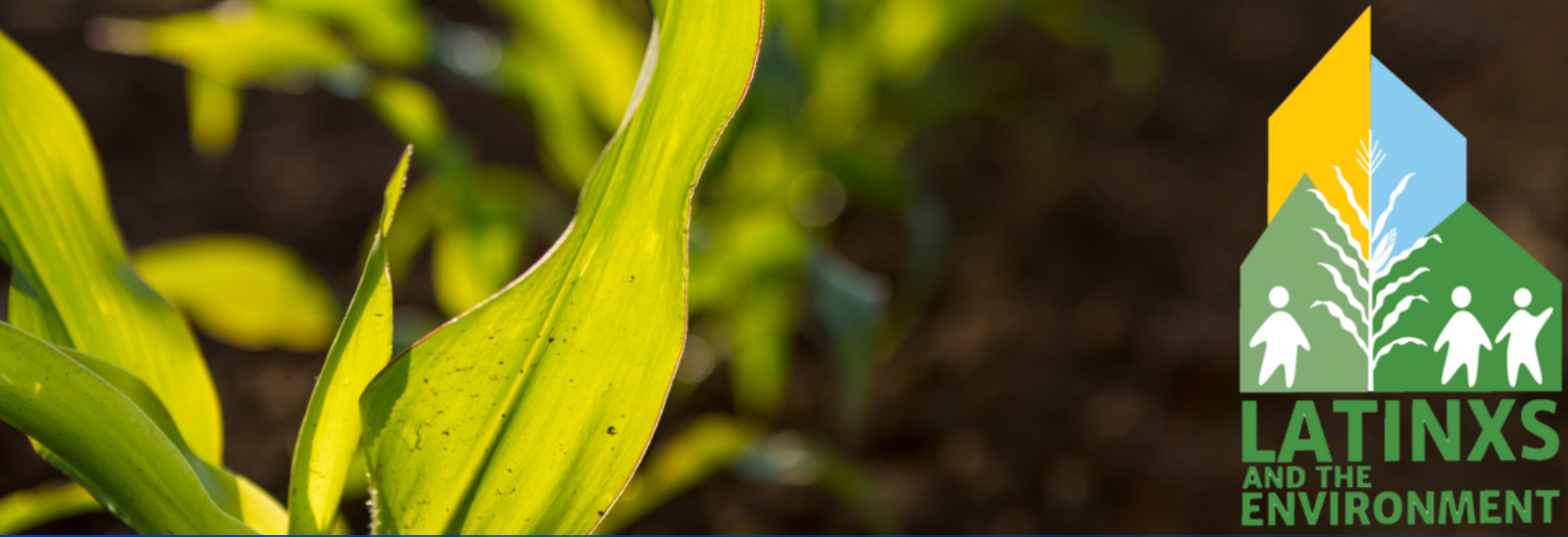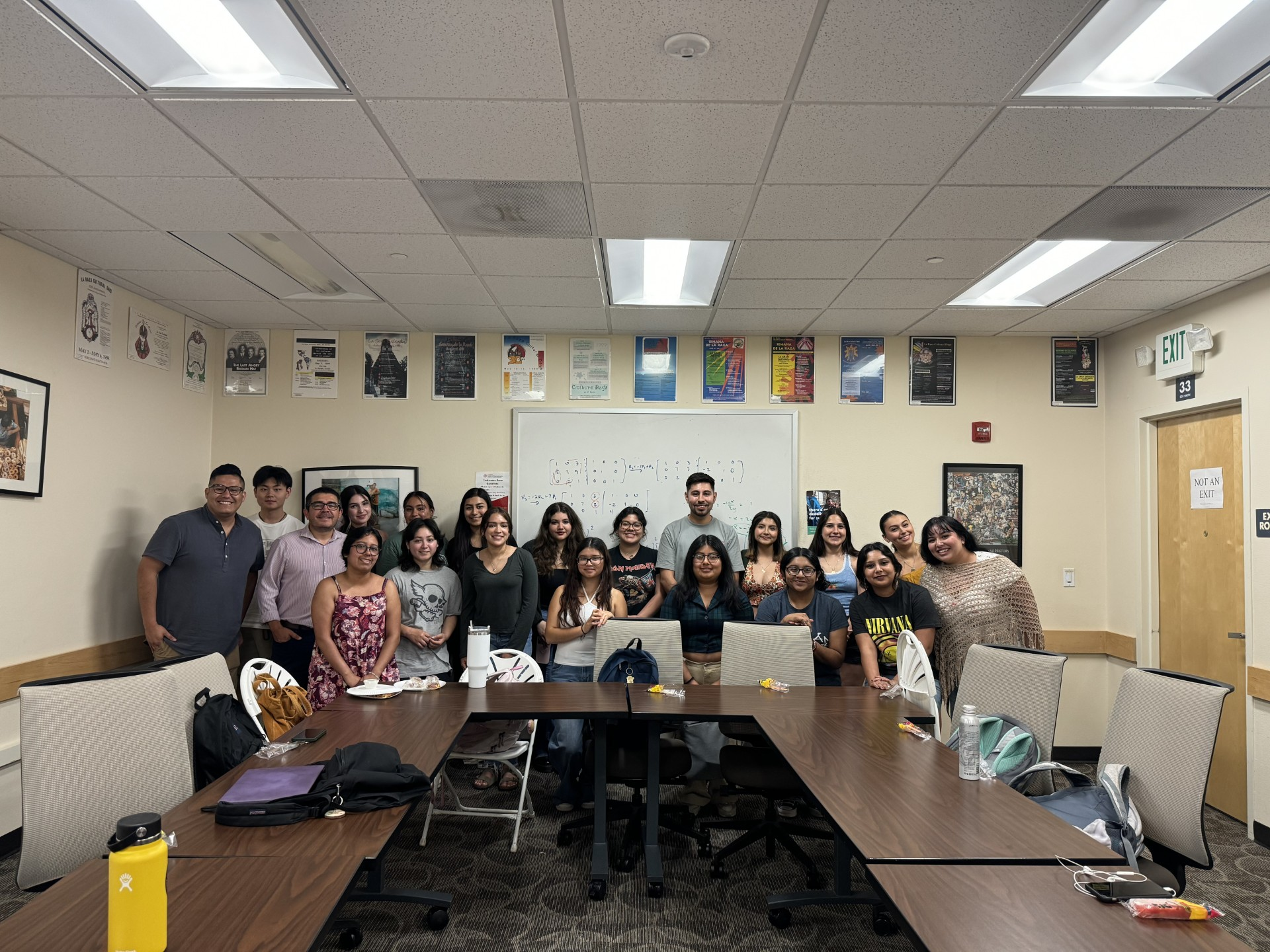Expanding Latinx Representation in the Environmental Sciences Across the University of California

After a class in 2014, a student went up to Federico Castillo, Ph.D.–lecturer and environmental/agricultural economist in UC Berkeley’s Department of Environmental Science, Policy & Management–and asked, “Where are all the Latino students in this class?” The question jarred Dr. Castillo because he realized that he rarely, if ever, saw Latinx students take the environment and natural resource courses he taught. He told the student he didn’t know, but the conversation stuck with Dr. Castillo. He asked other faculty in his department if they had many Latinx or students of color in their courses. And they all said there were very few.
When he looked deeper, Dr. Castillo realized that the lack of students in the field impacted who was conducting the research. “I started looking at my professional and academic career,” he says “and I realized that when I went to conferences to talk about climate change and the socio-economic impacts of extremes in climate change–with the common theme being extreme weather impacts communities of color in disproportionate negative ways– but there were not many folks of color talking about this. Very few researchers were people of color.” As he reflected on the paucity of researchers of color in the environmental health field, he aimed to change that starting at the UC System.” So he wanted to contribute to change that at UC. The result was the formation of Latinxs and the Environment (L&E) which Dr. Castillo, Lupe Gallegos Diaz, other colleagues, and students founded in 2017 at UC Berkeley and expanding to other UC campuses.
The program now operates in three UC campuses and expects to have a presence in more in the near future. The program’s main objective is to create a space specifically for Latinx students in the UC system to see themselves as participating in research and knowledge generation in environmental fields such as environmental and agricultural economics, ecosystem science, forestry and others focusing on relevant issues such as climate change, environmental justice, environmental science, and the planetary health framework are emphasized. Once the program started, there was significant interest from students, faculty, community-based organizations, and policymakers to foster this pipeline. Led by UCGHI Center for Planetary Health Co-Director, Dr. Sam Ying, the initiative expanded to UC Riverside in 2022, and the inaugural student-led Latinxs and the Environment conference, “Conectando a la comunidad Latina en la investigación ambiental y el cambio social,” was started at UC Riverside in Fall 2023.
L&E offers a variety of opportunities for Latinx students, including funding to participate in research conferences, mentorship, and research opportunities. One of the most comprehensive examples to support students within L&E is through a cohort model where students participate in a series of in-person classes and workshops that help them create a community on their home campus and across campuses. One of the most recent cohorts came out of the UC Davis Center for Chicanx and Latinx Academic Student Success (CCLASS), called “El Centro” informally by the students and staff.
Director of the Chicanx and Latinx Retention Initiative at UC Davis–under which El Centro’s work functions–Rodrigo Bonilla, is constantly looking at opportunities to help the retention of Latinx students and, therefore, looking at data to help serve their unique needs of the UC Davis campus. “An area of opportunity for us was in the area of agriculture and environment,” he says. So, when Dr. Castillo reached out to see if Dr. Bonilla and his team would be interested in partnering with L&E, they jumped on the opportunity to collaborate. “We didn't have any initiative where [Latinx] students could actually talk about some of the environmental issues that impacted the Latinx community,” says Rodrigo. “It’s really important for them to be exposed to research and to different opportunities where their scholar identity intersects with the environment.”
Rodrigo, thus, launched a pilot program in the Spring of 2024 through a Latinxs and the Environment seminar. “Seminars are always a great way to get folks in the door,” he says. So, they offered a one-unit, credit-bearing course where 19 students enrolled, reaching maximum capacity for the course. “It was developed to introduce students to a variety of different topics related to the way that the environment impacts Latinx communities.” The course brought in various experts from the field who talked about climate change, environmental justice, and environmental policy among many other topics. They also brought in experts talking about environmental issues through cultural humility including herbal and traditional medicine practices that are a part of Latinx culture.

The seminar also provided career guidance to students through conversations about professional development. “We don't just want them to be exposed to faculty members or researchers that are doing this type of work,” says Rodrigo. “We also wanted to give them the skills to then be able to support their professional journeys.” This was one of the most meaningful parts of the course Bonilla because he saw students envisioning their future in graduate school and beyond. “It was beautiful to see their excitement as this was the very first time they’ve actually been exposed to truly thinking about graduate school, what that means, along with the opportunity to continue to do research,” he says.
The course was a huge success with high demand, but it also felt very condensed for Rodrigo. He is hoping that the seminar in the future will expand over a full academic year in a cohort model. This additional time would allow him to expand on the specific concepts throughout the year and tailor assignments to what is happening on campus such as career fairs or field research opportunities. That is his goal for the 2025-2026 academic year because he believes the seminar needs to be built thoughtfully with intentional planning. But UC Davis’ El Centro will offer a two-part seminar in Winter and Spring of 2025 to continue the momentum.
What sticks with and drives Bonilla to continue the L&E seminar are the stories from the students. “I think about all of the things that folks wrote when they created their vision boards,” he says, “and they truly saw themselves as scholars and actually want to be a part of this currently very elitist academic structure. I think that for me it was very heartfelt and it was powerful to have the representation from grad students and researchers throughout the course that made them be able to say, ‘you know what, I can actually do this.’”
In the coming year, the L&E team plans to continue program growth at the UC systemwide level and individual campuses, starting with strengthening the new L&E student chapters at UC Davis and UC Merced. Want to get involved with L&E on your campus? Apply to the new L&E’s UC-wide Latinxs & the Environment Student Ambassador program. Apply by November 15th!
